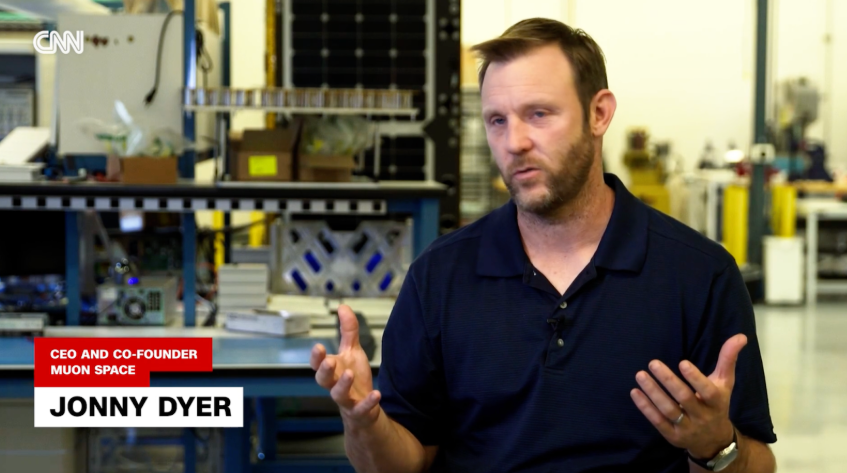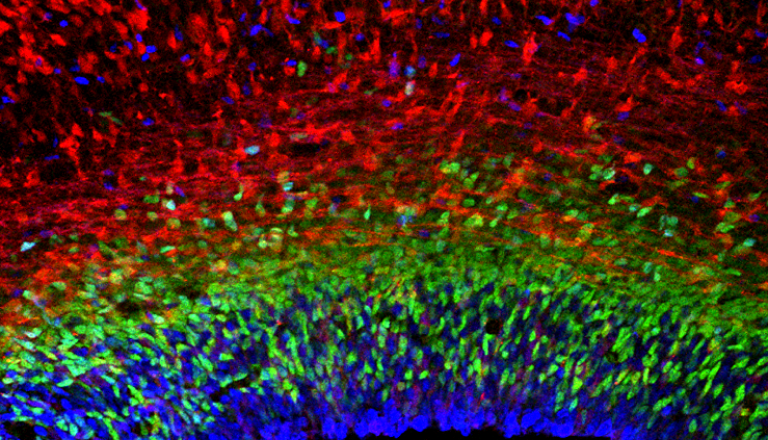This week, CNN featured FireSat, a satellite constellation developed by Muon Space, a Radical Ventures portfolio company, in partnership with the Earth Fire Alliance and Google. The video showcases how a fleet of over 50 AI-powered satellites scans the entire planet in near real-time, transforming wildfire detection and response capabilities worldwide.
Learn more from CNN’s feature on Muon Space’s work in launching FireSat.
AI News This Week
-
Building the Physical World's First AI Engineer (Radical Talks)
While AI transforms software, physical design remains largely untouched, mainly due to the limited availability of training data and complex reasoning requirements. In the latest episode of the Radical Talks podcast, Paul Eremenko, co-founder of Radical Ventures portfolio company P-1 AI, explains how their AI agent Archie, overcomes these challenges through synthetic data generation, creating millions of validated engineering designs. Archie functions as a junior engineer, performing core tasks while working with existing industry software. Starting with data center cooling systems, P-1 AI aims to develop engineering artificial general intelligence capable of designing across multiple domains.
-
Generating Bigger and Better Worlds (World Labs)
Radical Ventures portfolio company World Labs released Marble, a limited-access beta that generates navigable 3D worlds from text or image prompts. Unlike previous 3D generation tools that suffer from time limits and visual inconsistencies, Marble creates explorable environments with no morphing or degradation over time. The model produces geometrically consistent worlds that users can navigate freely in their browser, offering richer 3D experiences than traditional depth maps or point clouds. Early users are already composing individual generations into larger environments for filmmaking, game development, and VR storytelling applications.
-
How AI is Changing the Office (The Economist)
Generative AI is fundamentally reshaping workplace culture and behavior, unlike previous technological trends such as the metaverse. Research shows work-related ChatGPT messages increased from 213 million daily in June 2024 to 716 million a year later, with employees increasingly adopting AI tools independently. Anthropic’s Economic Index reveals that “automation” interactions now outnumber “augmentation” modes for the first time, indicating more tasks are being fully delegated to AI systems.
-
Distillation Can Make AI Models Smaller and Cheaper (Wired)
Distillation originated from a 2015 paper by Google researchers, including AI pioneer Geoffrey Hinton, who coined the term “dark knowledge” to describe how large “teacher” models contain nuanced information about wrong answers that smaller “student” models can learn from. The technique works by using probability distributions rather than binary classifications, allowing student models to understand that, for example, confusing a dog with a fox is less wrong than confusing a dog with a pizza. The concept gained global attention with DeepSeek’s R1 release, which allegedly used distillation techniques on OpenAI’s proprietary o1 model for training. Recent applications include UC Berkeley’s Sky-T1 reasoning model, which achieved performance comparable to much larger models for just under $450 in training costs.
-
Towards a Physics Foundation Model (University of Virginia/RWTH Aachen University)
Researchers have developed the General Physics Transformer (GPhyT), a breakthrough toward creating a universal physics engine that could democratize access to high-fidelity simulations across scientific disciplines. Unlike current physics-aware machine learning approaches that remain limited to single, narrow domains and require retraining for each new system, GPhyT learns to infer governing dynamics from context alone. The model can simulate fluid-solid interactions, shock waves, thermal convection, and multi-phase dynamics without requiring explicit programming of the underlying equations.
Radical Reads is edited by Ebin Tomy (Analyst, Radical Ventures)





